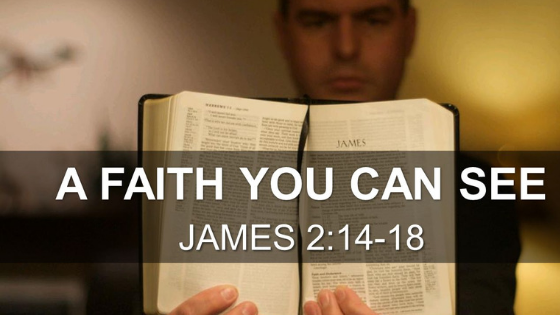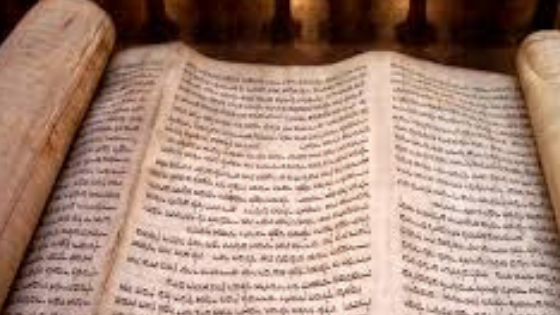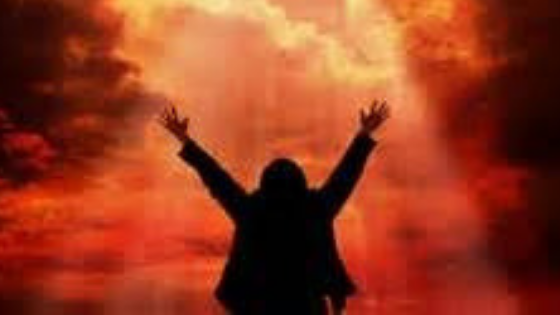@import url(https://www.ratisbonne.org.il/bk/wp-content/plugins/siteorigin-panels/css/front-flex.min.css); #pgc-4218-0-0 , #pgc-4218-0-2 { width:10%;width:calc(10% – ( 0.9 * 30px ) ) } #pgc-4218-0-1 { width:80%;width:calc(80% – ( 0.2 * 30px ) ) } #pl-4218 #panel-4218-0-1-0 { } #pl-4218 .so-panel { margin-bottom:30px } #pl-4218 .so-panel:last-child { margin-bottom:0px } #pg-4218-0.panel-no-style, #pg-4218-0.panel-has-style > .panel-row-style { -webkit-align-items:flex-start;align-items:flex-start } @media (max-width:780px){ #pg-4218-0.panel-no-style, #pg-4218-0.panel-has-style > .panel-row-style { -webkit-flex-direction:column;-ms-flex-direction:column;flex-direction:column } #pg-4218-0 .panel-grid-cell { margin-right:0 } #pg-4218-0 .panel-grid-cell { width:100% } #pgc-4218-0-0 , #pgc-4218-0-1 { margin-bottom:30px } #pl-4218 .panel-grid-cell { padding:0 } #pl-4218 .panel-grid .panel-grid-cell-empty { display:none } #pl-4218 .panel-grid .panel-grid-cell-mobile-last { margin-bottom:0px } }
Parashat Chol HaMo’ed Sukkot
@import url(https://www.ratisbonne.org.il/bk/wp-content/plugins/siteorigin-panels/css/front-flex.min.css); #pgc-4207-0-0 , #pgc-4207-0-2 { width:10%;width:calc(10% – ( 0.9 * 30px ) ) } #pgc-4207-0-1 { width:80%;width:calc(80% – ( 0.2 * 30px ) ) } #pl-4207 #panel-4207-0-1-0 { } #pl-4207 .so-panel { margin-bottom:30px } #pl-4207 .so-panel:last-child { margin-bottom:0px } #pg-4207-0.panel-no-style, #pg-4207-0.panel-has-style > .panel-row-style { -webkit-align-items:flex-start;align-items:flex-start } @media (max-width:780px){ #pg-4207-0.panel-no-style, #pg-4207-0.panel-has-style > .panel-row-style { -webkit-flex-direction:column;-ms-flex-direction:column;flex-direction:column } #pg-4207-0 .panel-grid-cell { margin-right:0 } #pg-4207-0 .panel-grid-cell { width:100% } #pgc-4207-0-0 , #pgc-4207-0-1 { margin-bottom:30px } #pl-4207 .panel-grid-cell { padding:0 } #pl-4207 .panel-grid .panel-grid-cell-empty { display:none } #pl-4207 .panel-grid .panel-grid-cell-mobile-last { margin-bottom:0px } }
The 25th Sunday of Ordinary Time
@import url(https://www.ratisbonne.org.il/bk/wp-content/plugins/siteorigin-panels/css/front-flex.min.css); #pgc-4181-0-0 , #pgc-4181-0-2 { width:10%;width:calc(10% – ( 0.9 * 30px ) ) } #pgc-4181-0-1 { width:80%;width:calc(80% – ( 0.2 * 30px ) ) } #pl-4181 #panel-4181-0-1-0 { } #pl-4181 .so-panel { margin-bottom:30px } #pl-4181 .so-panel:last-child { margin-bottom:0px } #pg-4181-0.panel-no-style, #pg-4181-0.panel-has-style > .panel-row-style { -webkit-align-items:flex-start;align-items:flex-start } @media (max-width:780px){ #pg-4181-0.panel-no-style, #pg-4181-0.panel-has-style > .panel-row-style { -webkit-flex-direction:column;-ms-flex-direction:column;flex-direction:column } #pg-4181-0 .panel-grid-cell { margin-right:0 } #pg-4181-0 .panel-grid-cell { width:100% } #pgc-4181-0-0 , #pgc-4181-0-1 { margin-bottom:30px } #pl-4181 .panel-grid-cell { padding:0 } #pl-4181 .panel-grid .panel-grid-cell-empty { display:none } #pl-4181 .panel-grid .panel-grid-cell-mobile-last { margin-bottom:0px } }
Parashat Ha'azinu
@import url(https://www.ratisbonne.org.il/bk/wp-content/plugins/siteorigin-panels/css/front-flex.min.css); #pgc-4171-0-0 , #pgc-4171-0-2 { width:10%;width:calc(10% – ( 0.9 * 30px ) ) } #pgc-4171-0-1 { width:80%;width:calc(80% – ( 0.2 * 30px ) ) } #pl-4171 #panel-4171-0-1-0 { } #pl-4171 .so-panel { margin-bottom:30px } #pl-4171 .so-panel:last-child { margin-bottom:0px } #pg-4171-0.panel-no-style, #pg-4171-0.panel-has-style > .panel-row-style { -webkit-align-items:flex-start;align-items:flex-start } @media (max-width:780px){ #pg-4171-0.panel-no-style, #pg-4171-0.panel-has-style > .panel-row-style { -webkit-flex-direction:column;-ms-flex-direction:column;flex-direction:column } #pg-4171-0 .panel-grid-cell { margin-right:0 } #pg-4171-0 .panel-grid-cell { width:100% } #pgc-4171-0-0 , #pgc-4171-0-1 { margin-bottom:30px } #pl-4171 .panel-grid-cell { padding:0 } #pl-4171 .panel-grid .panel-grid-cell-empty { display:none } #pl-4171 .panel-grid .panel-grid-cell-mobile-last { margin-bottom:0px } }
Parashat Ha’azinu
@import url(https://www.ratisbonne.org.il/bk/wp-content/plugins/siteorigin-panels/css/front-flex.min.css); #pgc-4171-0-0 , #pgc-4171-0-2 { width:10%;width:calc(10% – ( 0.9 * 30px ) ) } #pgc-4171-0-1 { width:80%;width:calc(80% – ( 0.2 * 30px ) ) } #pl-4171 #panel-4171-0-1-0 { } #pl-4171 .so-panel { margin-bottom:30px } #pl-4171 .so-panel:last-child { margin-bottom:0px } #pg-4171-0.panel-no-style, #pg-4171-0.panel-has-style > .panel-row-style { -webkit-align-items:flex-start;align-items:flex-start } @media (max-width:780px){ #pg-4171-0.panel-no-style, #pg-4171-0.panel-has-style > .panel-row-style { -webkit-flex-direction:column;-ms-flex-direction:column;flex-direction:column } #pg-4171-0 .panel-grid-cell { margin-right:0 } #pg-4171-0 .panel-grid-cell { width:100% } #pgc-4171-0-0 , #pgc-4171-0-1 { margin-bottom:30px } #pl-4171 .panel-grid-cell { padding:0 } #pl-4171 .panel-grid .panel-grid-cell-empty { display:none } #pl-4171 .panel-grid .panel-grid-cell-mobile-last { margin-bottom:0px } }
4th SUNDAY OF THE YEAR
@import url(https://www.ratisbonne.org.il/bk/wp-content/plugins/siteorigin-panels/css/front-flex.min.css); #pgc-4159-0-0 , #pgc-4159-0-2 { width:10%;width:calc(10% – ( 0.9 * 30px ) ) } #pgc-4159-0-1 { width:80%;width:calc(80% – ( 0.2 * 30px ) ) } #pl-4159 #panel-4159-0-1-0 { } #pl-4159 .so-panel { margin-bottom:30px } #pl-4159 .so-panel:last-child { margin-bottom:0px } #pg-4159-0.panel-no-style, #pg-4159-0.panel-has-style > .panel-row-style { -webkit-align-items:flex-start;align-items:flex-start } @media (max-width:780px){ #pg-4159-0.panel-no-style, #pg-4159-0.panel-has-style > .panel-row-style { -webkit-flex-direction:column;-ms-flex-direction:column;flex-direction:column } #pg-4159-0 .panel-grid-cell { margin-right:0 } #pg-4159-0 .panel-grid-cell { width:100% } #pgc-4159-0-0 , #pgc-4159-0-1 { margin-bottom:30px } #pl-4159 .panel-grid-cell { padding:0 } #pl-4159 .panel-grid .panel-grid-cell-empty { display:none } #pl-4159 .panel-grid .panel-grid-cell-mobile-last { margin-bottom:0px } }
Parashat Vayelech
@import url(https://www.ratisbonne.org.il/bk/wp-content/plugins/siteorigin-panels/css/front-flex.min.css); #pgc-4148-0-0 , #pgc-4148-0-2 { width:10%;width:calc(10% – ( 0.9 * 30px ) ) } #pgc-4148-0-1 { width:80%;width:calc(80% – ( 0.2 * 30px ) ) } #pl-4148 #panel-4148-0-1-0 { } #pl-4148 .so-panel { margin-bottom:30px } #pl-4148 .so-panel:last-child { margin-bottom:0px } #pg-4148-0.panel-no-style, #pg-4148-0.panel-has-style > .panel-row-style { -webkit-align-items:flex-start;align-items:flex-start } @media (max-width:780px){ #pg-4148-0.panel-no-style, #pg-4148-0.panel-has-style > .panel-row-style { -webkit-flex-direction:column;-ms-flex-direction:column;flex-direction:column } #pg-4148-0 .panel-grid-cell { margin-right:0 } #pg-4148-0 .panel-grid-cell { width:100% } #pgc-4148-0-0 , #pgc-4148-0-1 { margin-bottom:30px } #pl-4148 .panel-grid-cell { padding:0 } #pl-4148 .panel-grid .panel-grid-cell-empty { display:none } #pl-4148 .panel-grid .panel-grid-cell-mobile-last { margin-bottom:0px } }
the 23rd Sunday in Ordinary Time
@import url(https://www.ratisbonne.org.il/bk/wp-content/plugins/siteorigin-panels/css/front-flex.min.css); #pgc-4130-0-0 , #pgc-4130-0-2 { width:10%;width:calc(10% – ( 0.9 * 30px ) ) } #pgc-4130-0-1 { width:80%;width:calc(80% – ( 0.2 * 30px ) ) } #pl-4130 #panel-4130-0-1-0 { } #pl-4130 .so-panel { margin-bottom:30px } #pl-4130 .so-panel:last-child { margin-bottom:0px } #pg-4130-0.panel-no-style, #pg-4130-0.panel-has-style > .panel-row-style { -webkit-align-items:flex-start;align-items:flex-start } @media (max-width:780px){ #pg-4130-0.panel-no-style, #pg-4130-0.panel-has-style > .panel-row-style { -webkit-flex-direction:column;-ms-flex-direction:column;flex-direction:column } #pg-4130-0 .panel-grid-cell { margin-right:0 } #pg-4130-0 .panel-grid-cell { width:100% } #pgc-4130-0-0 , #pgc-4130-0-1 { margin-bottom:30px } #pl-4130 .panel-grid-cell { padding:0 } #pl-4130 .panel-grid .panel-grid-cell-empty { display:none } #pl-4130 .panel-grid .panel-grid-cell-mobile-last { margin-bottom:0px } }
Parashat Nitzavim
@import url(https://www.ratisbonne.org.il/bk/wp-content/plugins/siteorigin-panels/css/front-flex.min.css); #pgc-4120-0-0 , #pgc-4120-0-2 { width:10%;width:calc(10% – ( 0.9 * 30px ) ) } #pgc-4120-0-1 { width:80%;width:calc(80% – ( 0.2 * 30px ) ) } #pl-4120 #panel-4120-0-1-0 { } #pl-4120 .so-panel { margin-bottom:30px } #pl-4120 .so-panel:last-child { margin-bottom:0px } #pg-4120-0.panel-no-style, #pg-4120-0.panel-has-style > .panel-row-style { -webkit-align-items:flex-start;align-items:flex-start } @media (max-width:780px){ #pg-4120-0.panel-no-style, #pg-4120-0.panel-has-style > .panel-row-style { -webkit-flex-direction:column;-ms-flex-direction:column;flex-direction:column } #pg-4120-0 .panel-grid-cell { margin-right:0 } #pg-4120-0 .panel-grid-cell { width:100% } #pgc-4120-0-0 , #pgc-4120-0-1 { margin-bottom:30px } #pl-4120 .panel-grid-cell { padding:0 } #pl-4120 .panel-grid .panel-grid-cell-empty { display:none } #pl-4120 .panel-grid .panel-grid-cell-mobile-last { margin-bottom:0px } }


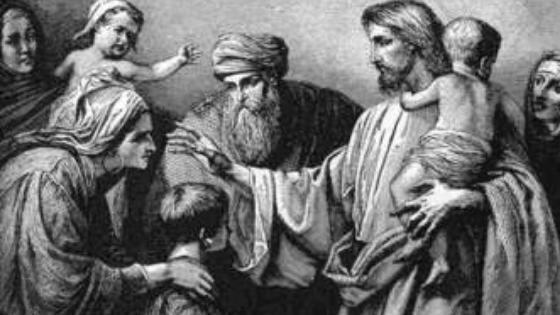
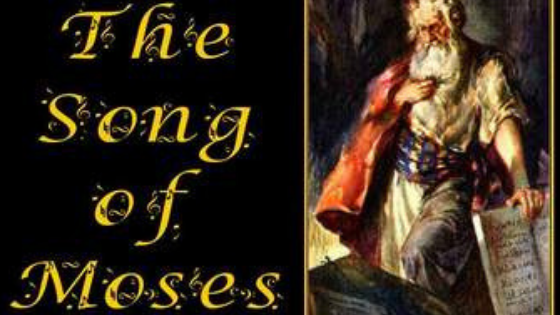
 In my latest commentary on Parashat Balak, I mentioned there how Bro. Jack Driscol encouraged us to try and read the whole Torah Portion for the week. Now to write a commentary on a Parashat, one is asked to read at least five different versions or editions of the Parashat. If one can find the time, it is very interesting and an eye opening in the excavation of words and the text. I find it very interesting, in my level of learning as each edition is different and unique in its form and style. Parashat Ha’azinu has 52 verses. In the Jerusalem Bible, the heading is, “The Song of Moses” (verses 1-44), “The Law, the source of Life” (verse 45-47) and “Moses’ death foretold” (verse 48-52).(JB. Popular Edition pg. 225).
In my latest commentary on Parashat Balak, I mentioned there how Bro. Jack Driscol encouraged us to try and read the whole Torah Portion for the week. Now to write a commentary on a Parashat, one is asked to read at least five different versions or editions of the Parashat. If one can find the time, it is very interesting and an eye opening in the excavation of words and the text. I find it very interesting, in my level of learning as each edition is different and unique in its form and style. Parashat Ha’azinu has 52 verses. In the Jerusalem Bible, the heading is, “The Song of Moses” (verses 1-44), “The Law, the source of Life” (verse 45-47) and “Moses’ death foretold” (verse 48-52).(JB. Popular Edition pg. 225).